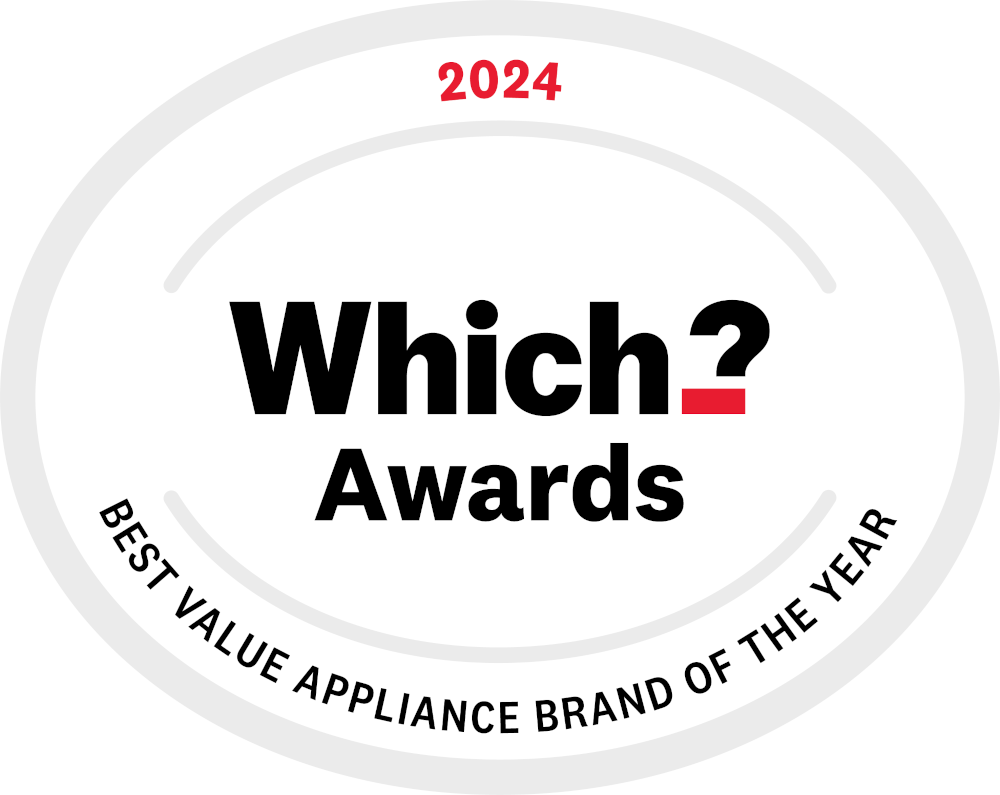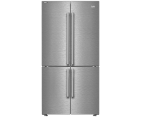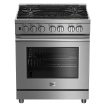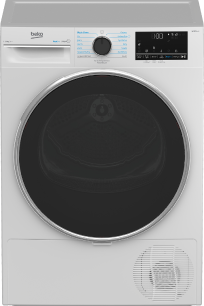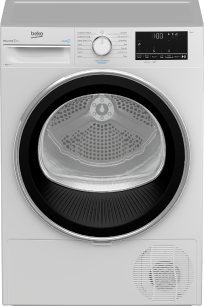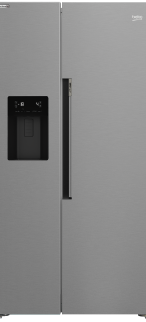Beko's top tips on how to use your appliances more effectively
With the surge in energy costs and the subsequent increase in the running costs of appliances, it’s more important than ever to understand how to use your appliance effectively. Making small changes when using home appliances can make a big difference to your energy and water usage, helping to save money on your utility bills. Equally, purchasing more energy efficient appliances will help to reduce your energy and water usage. To help you learn how to use your home appliances in the most efficient way, we’ve pulled together our top tips in this comprehensive guide.
Click on the category icons below to discover how to use your home appliances more effectively.
Wash your laundry more efficiently with Beko
Save time and energy when drying clothes with Beko
Reduce your dishwasher’s water and energy consumption with Beko
Increase the efficiency of your fridge with Beko
Save time, energy, and money when cooking with Beko
Frequently asked energy saving questions
The running cost of a tumble dryer will vary depending on the type of dryer you own. There are three main types of tumble dryers: vented tumble dryers, condenser tumble dryers, and heat pump tumble dryers The main differences between these appliances centre on the way each model extracts hot air. Using a lower temperature to dry the load, Heat Pump tumble dryers are the most energy-efficient tumble dryers on the market and can save over £130 a year in running costs when compared to a standard condenser dryer.[1] For more information on the different types of tumble dryers, please click here.
On average, a condenser tumble dryer costs £668 to run per year[2]. In comparison, a heat pump tumble dryer costs £227 to run on average per year.[3] To figure out the precise cost of your tumble dryer, you will need to check the kWh usage of your dryer and multiply this by your tariff costs, along with how often you use your appliance. If you own a Beko tumble dryer, the kWh usage of your appliance can be found on our website. To find this information, simply insert your model number into the search bar on our site and click through to your product’s page. Once on this page, scroll down to the product specification section where the consumption value can be found.
[1] https://www.amdea.org.uk/campaigns/know-watts-what/household-hacks/
[2] Uses the YourEko tool calculation that compares the annual energy consumption of all condenser dryers in the market, based on the Cotton cupboard dry programme (used by the EU Energy Label Standard) and 260 cycles per year. Energy tariff of 34p kWh. Date of calculation: November 2022.
[3] Uses the YourEko tool calculation that compares the annual energy consumption of all heat pump dryers in the market, based on the Cotton cupboard dry programme (used by the EU Energy Label Standard) and 260 cycles per year. Energy tariff of 34p kWh. Date of calculation: November 2022.
Similarly, to running costs, the amount of energy used by a tumble dryer will vary depending on the model you own. Installing a smart meter in your home will allow you to accurately view how much energy you are using in real-time. The monitor will show how much energy is being used by a particular appliance, allowing you to see how much energy your tumble dryer uses, along with how much your tumble dryer costs per hour. A smart meter will also be able to answer the question ‘how much electricity does a tumble dryer use?’.
On average, a full-size dishwasher costs £97 to run per year.[4] In comparison, a slimline dishwasher costs £83 on average to run per year.[5] If you wish to learn the precise running costs of your dishwasher, you will need to check the kWh usage of your model and multiply this by your tariff costs, along with how often you use your appliance. If you own a Beko dishwasher, the kWh usage of your appliance can be found in your product manual. Alternatively, it can be found on our website. To find this information, simply insert your model number into the search bar on our site and click through to your product’s page. Once on this page, scroll down to the product specification section where the consumption value can be found.
[4] Uses the YourEko tool calculation that compares the annual energy consumption of all Full-Size Dishwashers in the market, based on the Eco programme (used by the EU Energy Label Standard) and 254 cycles per year. Energy tariff of 34p kWh. Date of calculation: November 2022.
[5] Uses the YourEko tool calculation that compares the annual energy consumption of all Slimline Dishwashers in the market, based on the Eco programme (used by the EU Energy Label Standard) and 254 cycles per year. Energy tariff of 34p kWh. Date of calculation: November 2022.
On average, a washing machine costs £76 to run per year.[6] In comparison, a washer dryer costs £409 to run on average per year.[7] If you wish to learn the precise running costs of your washing machine, you will need to check the kWh usage of your model and multiply this by your tariff costs, along with how often you use your appliance. If you own a Beko washing machine, the kWh usage of your appliance can be found in your product manual. Alternatively, it can be found on our website. To find this information, simply insert your model number into the search bar on our site and click through to your product’s page. Once on this page, scroll down to the product specification section where the consumption value can be found.
[6] Uses the YourEko tool calculation that compares the annual energy consumption of all washing machines in the market, based on Eco 40-60 programme (used by the EU Energy Label Standard) and 284 cycles per year. Energy tariff of 34p kWh. Date of calculation: November 2022.
[7] Uses the YourEko tool calculation that compares the annual energy consumption of all washer dryers in the market, based on the wash and dry programme (used by the EU Energy Label Standard) and 284 cycles per year. Energy tariff of 34p kWh. Date of calculation: November 2022.
On average, a tall fridge costs £68 to run per year.[8] In comparison, an under-counter fridge costs £62 on average to run per year.[9] If you wish to learn the precise running costs of your fridge, you will need to check the kWh usage of your model and multiply this by your tariff costs, along with how often you use your appliance. If you own a Beko fridge, the kWh usage of your appliance can be found in your product manual. Alternatively, it can be found on our website. To find this information, simply insert your model number into the search bar on our site and click through to your product’s page. Once on this page, scroll down to the product specification section where the consumption value can be found.
[8] Uses the YourEko tool calculation that compares the annual energy consumption of all upright fridges in the market based on the EU Energy Label Standard. Energy tariff of 34p kWh. Date of calculation: November 2022.
[9] Uses the YourEko tool calculation that compares the annual energy consumption of all upright, undercounter fridges in the market based on the EU Energy Label Standard. Energy tariff of 34p kWh. Date of calculation: November 2022.
On average, a combi fridge freezer costs £134 to run per year.[10] In comparison, an American-style fridge freezer costs £197 on average to run per year.[11] To calculate the running costs of your specific model, you will need to multiply the kWh usage of your model by your tariff costs, along with how often you use your appliance. If you own a Beko fridge freezer, the kWh usage of your appliance can be found in your product manual. Alternatively, it can be found on our website. To find this information, simply insert your model number into the search bar on our site and click through to your product’s page. Once on this page, scroll down to the product specification section where the consumption value can be found.
[10] Uses the YourEko tool calculation that compares the annual energy consumption of all combi (50/50, 60/40, 70/30 and 80/20 split) fridge freezers in the market based on the EU Energy Label Standard. Energy tariff of 34p kWh. Date of calculation: November 2022.
[11] Uses the YourEko tool calculation that compares the annual energy consumption of all American fridge freezers in the market based on the EU Energy Label Standard. Energy tariff of 34p kWh. Date of calculation: November 2022.

